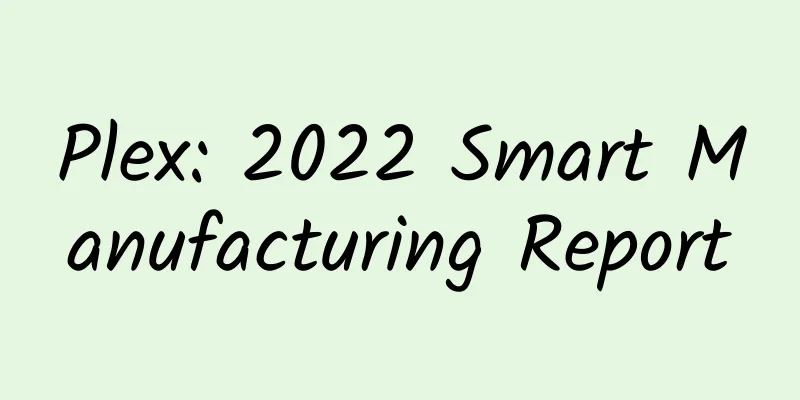Plex: 2022 Smart Manufacturing Report

|
Plex released the "2022 Smart Manufacturing Report", revealing the ongoing challenges manufacturers face in the supply chain crisis and the struggle to regain control of key commodities, supplier life, technological innovation and logistics complexity. The study surveyed 321 global manufacturers to understand their agility, technology adoption and need for process improvement in response to market adversity. The speed of popularization of intelligent manufacturing has increased by 50% Technology and automation are driving the next generation of manufacturing, and the adoption of smart manufacturing will continue to accelerate in 2022. Software modularity allows for the adoption of incremental technology, which is increasingly attractive as manufacturers look to become more agile in the face of adversity.
The pandemic exposed the lack of a complete supply chain planning solution The pandemic exposed and exacerbated the stopgap measures previously used by manufacturers. The fragile nature of systems, processes, and supply chain solutions that had historically been measured as “good enough” became apparent.
Once overhyped technology is solving today’s problems Technologies once viewed as overhyped and unlikely to make meaningful contributions are now critical to success. Cloud computing, industrial rugged equipment, and process automation are helping companies overcome challenges such as skilled labor shortages, supply chain management, and risk reduction. Additionally, machine learning/artificial intelligence is gaining mainstream adoption to support complex supply chain planning.
|
<<: IFR: 517,385 new industrial robots installed worldwide in 2021
Recommend
Jia Jia Jia "Introduction to Color Matching for Commercial Illustrations"
With 7 years of illustration experience, we have s...
22 mobile game companies were named. Will the high growth of mobile games come to an end?
Yesterday, the Ministry of Culture released the 2...
Why are there "silkworm cocoons" hanging on trees? Inside are "bug agents" protecting the green
As the weather gets warmer, some trees have small...
A beginner's guide to financial management that is useful to everyone
Course file directory: V-1394: A beginner's g...
Apple confirms iPhone/iPad will become bricked if the time setting is incorrect
On February 16, it was reported a few days ago th...
Is it illegal not to have a Qingming Festival holiday in 2022? Will the school be reopened during the Qingming Festival? Attached the latest news
As the Qingming Festival holiday approaches, the w...
Goose: Don’t compare me with roast duck. Even a dog can’t underestimate my fighting ability!
I am Dong Dong Meow Talking animals are so fun! T...
In-depth analysis and market report on overseas influencer marketing
This report is produced by SocialBook, an America...
Teacher Wei Chunyang's 2021 "Institutional Trading Code" Intraday Text Live Broadcast + Post-Market Video Teaching
Introduction to Teacher Wei Chunyang's 2021 &...
Law of Attraction Course + Wealth Attraction Course: Perfectly realize your dreams and wishes and make your life rich
Law of Attraction Course + Wealth Attraction Cour...
How to efficiently create a set of advertising creative materials?
How to design a good set of materials quickly and...
After studying 1,000 information flow landing pages, we summarized 5 conversion rate optimization tips
Conversion is the key factor in paid promotion . ...
Inventory of 20 practical tools for short videos: materials, operations, and editing
Currently, the short video industry has attracted...
Detailed explanation of Tik Tok short video promotion and sales!
Since the development of short videos to goods, f...









